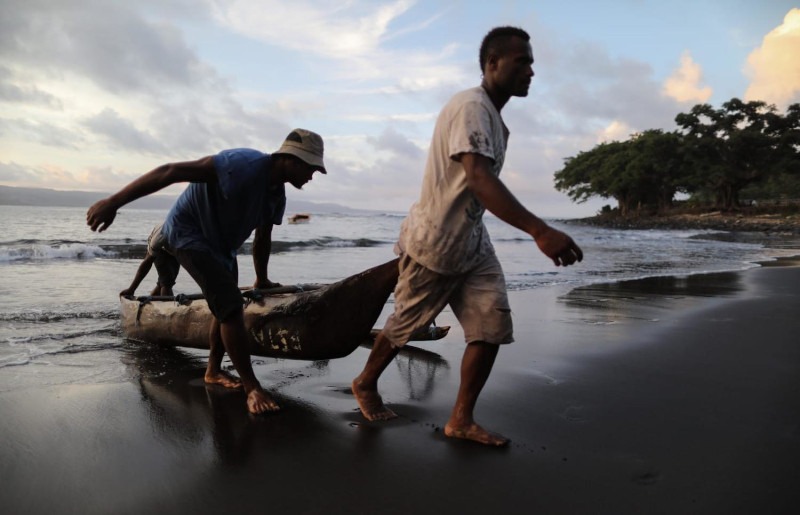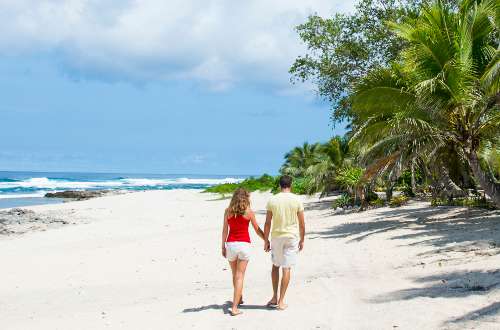
Richard Butler | Exclusive Report by Hamish Fejo of The Interpreter | APRIL 14th, 2023
When Australians hear of small island developing states, the most immediate thought is of the Pacific. However, all small island states across the globe are at risk from climate change. With Australia bidding to co-host COP31 in 2026 and seeking a seat on the UN Security Council for 2029–30, these island nations will be an important group to engage for support.
The Pacific is home to 13 of the 38 small island developing states that are members of the United Nations. The remaining 25 are in the Caribbean, the Atlantic and Indian Oceans, and the South China Sea. While Australia has diplomatic representation in all the Pacific island countries, it only has resident representation in five of the remaining 25, with High Commissions in Mauritius, Singapore and Trinidad and Tobago, and an Embassy in Timor-Leste. There are Honorary Consuls in Barbados and Jamaica. While there is currently no Australian diplomatic mission in the Maldives, Australia announced in February 2020 that it would soon open a High Commission in Malé.
Visits by Australian ministers and senior officials to the Caribbean have been scarce, as have bilateral meetings at major international forums. Julie Bishop, as then foreign minister, was the last Australian minister to visit the Caribbean in 2017. Australia’s Ambassador for Women and Girls and Australia’s Special Envoy for Human Rights also undertook bilateral visits to the Caribbean in 2017. These visits were in part due to Australia’s candidacy for a seat on the UN Human Rights Council in 2018–20. Since then, there’s been a notable lull in engagement. Of course, this gap also coincides with the Covid-19 pandemic. To avoid the errors of the past, a longer-term, more enduring strategy of engagement is needed and should be part of the thinking in new International Development Policy.
Given the tough fiscal environment, it is unlikely that Australia will increase its engagement with other small island developing states outside the Pacific through a boost in development assistance or other costly initiatives. Instead, Australia should look to leverage its increased international activities on climate change and energy to help shape its relationships with these countries.

Island states manage 30 per cent of the global ocean and are home to some of the world’s most endangered endemic species. They are also disproportionately impacted by the effects of global warming. Infrastructure, as well as the security of food and water, are already in danger due to sea level rises and harsh weather events. Despite these dangers, small island developing states still have trouble accessing the funding they require to adapt to climate change and to protect their ecosystems and way of life.
Australia already has a strong history of supporting small island developing states to ensure their voices are heard on the world stage. For example, Australia has provided funding through the Commonwealth Small States Office that enables representation of small island developing states at the United Nations in Geneva and New York. Australia was also the first country to provide funding to the Commonwealth Climate Finance Access Hub. But to win the trust and commitment of these small island states, the climate change agenda and narrative needs to be consistently applied.
To enhance its engagement, Australia should develop and implement a small island developing states strategy that goes out until at least 2030 so it captures both the COP31 bid and the UNSC 2029–30 candidacy. Australia has already pursued a strategy for engagement in the Pacific and is building up its international climate engagement.
A small island developing states strategy could identify areas of interest where Australia can support the states to strengthen their resilience, building on Australia’s representation on the UN High Level Panel of the Multidimensional Vulnerability Index. This might entail pushing for increased ambition and global action on climate change, and providing guidance on how to safeguard and sustainably manage marine resources and build resilience. It could also include collaborating with other partners to help small island developing states better access and utilise international finance to deal with loss and damage, and continuing to push for changes to access increased adaptation funding in organisations such as the Green Climate Fund and the Organisation for Economic Cooperation and Development – Development Assistance Committee (OECD-DAC), where Australia co-chairs (with the United Kingdom) the Small Island Developing States working group.
If you want to get in the game, you need to stay in the game through consistent engagement. Australia should take advantage of key meetings that small island developing states attend, including the annual meeting of the Commonwealth Foreign Affairs Ministers, the UN General Assembly High-Level Week, the 4th International Small Island Developing States Conference in 2024, and future UN Framework Convention on Climate Change conferences. The Commonwealth Heads of Government Meeting, which Samoa will host in 2024, will be held for the first time in a Pacific country, and many of the more than 50 leaders and ministers expected to participate would probably pass via Australia on their journey to and/or from Apia. Another opportunity for engagement will come with the 2026 Commonwealth Games in Victoria, as Australia will likely host several Commonwealth ministers and dignitaries.
If Australia is serious about climate change and successfully pursuing international candidacies, then it needs to develop a coherent and meaningful approach to all small island developing states, not just those in the Pacific and Southeast Asia.





